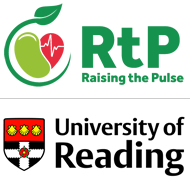 In the UK, nearly everybody eats bread and 90% buy white bread, which in most cases contains soya flour, as an improver. Now, researchers at the University of Reading are encouraging the bakery industry to switch to faba bean flour, making white bread both healthier and more sustainable.
In the UK, nearly everybody eats bread and 90% buy white bread, which in most cases contains soya flour, as an improver. Now, researchers at the University of Reading are encouraging the bakery industry to switch to faba bean flour, making white bread both healthier and more sustainable.
The £2 million, three-year, publicly-funded 'Raising the Pulse' project has officially begun and was announced earlier this year, in the Nutrition Bulletin journal.
It is a multidisciplinary programme of research, funded by the UKRI Biotechnology and Biological Sciences Research Council, as part of their 'Transforming UK Food Systems' initiative.
Associate Professor Paola Tosi leads the branch of the project that looks at milling and the essential qualities of the flour. She said: "We've already performed some experiments and found that faba bean flour can directly replace imported soya flour and some of the wheat flour in breadmaking."
"White bread made with faba bean flour has essentially the same texture as white bread made with soy flour, while colour is a little altered, with the faba bean enriched loaves having an appetising slight yellow hue. The bread itself is delicious and it toasts really well."
Despite being an excellent alternative to the ubiquitous imported soya bean, the great majority of faba beans presently grown in the UK are used as animal feed.
In contrast to soy beans, the UK climate is ideal for cultivating faba beans, so it begs the question as to exactly why faba beans aren’t more prevalent in human consumption.

Faba beans are particularly high in easily digested protein, fibre and iron - both nutrients that can be lacking in UK diets.
Growing beans for bread
The University of Reading team are optimising the sustainability and nutritional quality of faba beans grown In the UK. This is with a view to supporting farmers willing to switch some land to faba bean production to meet demand for new end uses, such as those involved in breadmaking.
Professor Donald O'Sullivan is co-lead on the project and a crop scientist at the University. He commented, "Faba bean is an incredibly environmentally friendly crop because not only has it got its own source of nitrogen fertiliser in the form of root nodules that can take nitrogen from the air and turn it into a form that the plant can use, but its abundant, nectar-rich flowers attract and feed precious pollinators."
"So, as well as choosing or breeding faba bean varieties that are as nutrient-dense as possible, we will work to optimise production systems to maximise the already clear-cut benefits to soil health, greenhouse gas emissions and biodiversity."
In this way, the research will underpin plans for a changing climate and mitigate any future reduction in the amount of food we are able to import.
A healthy choice
Faba beans are particularly high in easily digested protein, fibre and iron - both nutrients that can be lacking in UK diets. The majority of people are not used to cooking and eating faba beans, which poses a major challenge if consumers are to benefit from this nutritional ingredient.
Director of the University of Reading Hugh Sinclair Unit of Human Nutrition and co-lead on the project, Professor Julie Lovegrove said: "We had to think laterally: what do most people eat and how can we improve their nutrition without them having to change their diets? The obvious answer is bread!"
"Replacing some of the wheat flour with faba bean flour enables us to increase the nutrient density of the white loaf. We are enriching the bread with micronutrients and good quality protein, while also increasing the amount of fibre, with its associated health benefits."
As well as consulting and working with members of disadvantaged communities, there will be studies using new foods containing faba beans, in the University of Reading's students' halls of residence and catering outlets.
This links ‘Raising the Pulse’ with Matt Tebbit, who runs the University’s catering service and leads the University's 'Menus for Change' research programme. He said: "Students will be asked to rate products made or enriched with faba bean, such as bread, flat bread and hummus. They will be asked questions about how full they felt, for how long and their liking of the foods. It is hoped that faba bean will improve satiety, as well as providing enhanced nutritional benefits in products that are enjoyable to eat."

from left to right: Donald O'Sullivann Julie Lovegrove and Paola Tosi
See Professor Julie Lovegrove introducing the project
Play video